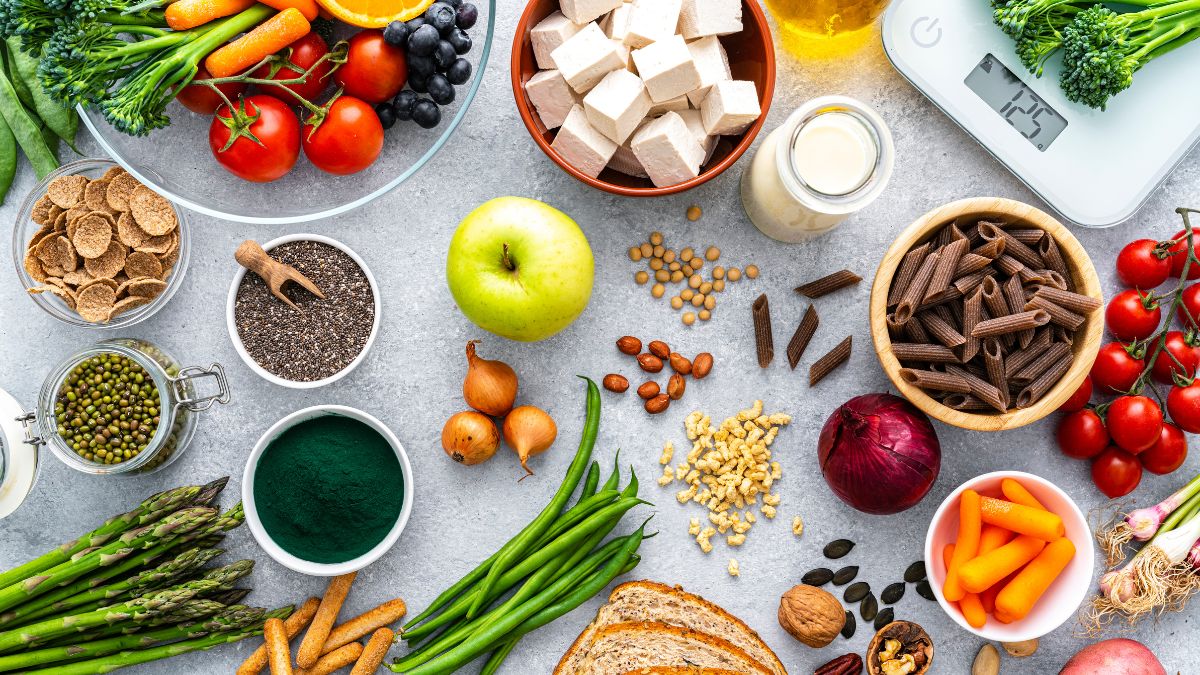Eating a plant-based diet is becoming increasingly popular as more people are looking for ways to improve their health and reduce their environmental impact. In addition to the health and environmental benefits, there are many other reasons why following a plant-based diet can be beneficial. From feeling more energized to reducing the risk of certain diseases, a plant-based diet offers up some serious perks. In this article, we’ll explore the numerous advantages of eating a plant-based diet and how you can start adopting one today.
The Benefits of Plant-Based Diets
A plant-based diet is rich in fruits, vegetables, whole grains, legumes, nuts, and seeds. This way of eating offers numerous health benefits, such as:
- Improved Heart Health:Plant-based foods are high in fiber, which helps in maintaining healthy cholesterol levels and reducing the risk of heart disease. This includes foods like oats, nuts, seeds, and legumes.
- Reduced Cancer Risk:Consuming a predominantly plant-based diet has been linked to a lower risk of several types of cancer. This is due to the various antioxidants, vitamins, and minerals present in fruits and vegetables that help protect our cells from damage. You could also look into adding more cruciferous vegetables to your diet, such as broccoli and cauliflower.
- Better Blood Sugar Control: Diets rich in plant-based foods can help control blood sugar levels and are, therefore, beneficial for people with diabetes or at risk of developing the disease. Adding more fiber-rich foods such as oats, quinoa, and legumes can help manage blood sugar levels. The key is to eat whole, healthy plant based foods rather than anything that fits into this category.
- Enhanced Nutrient Intake:Plant-based diets offer a bounty of essential nutrients that help keep us healthy. These include antioxidants, vitamins, minerals, and phytonutrients. Eating more plant-based foods can ensure a sufficient supply of all these vital nutrients.
Plant-Based Diet for Weight Loss
Weight loss for women can be challenging and finding the right diet suitable for one’s lifestyle, causes for weight issue, and preferences is crucial. A plant-based diet can aid in weight loss by reducing calorie intake and increasing fiber consumption. The high fiber content helps keep you feeling fuller for longer, thus naturally reducing calorie intake. I usually recommend that women add more leafy greens, salads, and stir-fries to their meals. Additionally, legumes such as lentils or chickpeas, as well as whole grains like brown rice and quinoa, can be great options for plant-based meals.
Some women with PCOS tend to have a harder time with a plant-based diet type initially, especially if they are highly inflammatory or have never been treated or diagnosed with PCOS. If you have tried a plant-based diet and have felt worse, please consider talking to your doctor about being tested for PCOS. Make sure your whole hormone panel is being tested, including estrogen, progesterone, and testosterone, not just an ultrasound.
These are a few of the many benefits of following a plant-based diet. Eating more whole, fresh foods from plants in any diet can help improve your overall health and reduce your risk of chronic diseases. And if you feel like you need a little extra help with your weight loss efforts, consider adding a plant-based protein supplement to your routine (especially if you struggle with whey proteins). I always encourage my clients to keep a food journal and take note of the results they get from their plant-based diet. This will help you stay motivated as you make healthy changes in your lifestyle and learn more about what works best for you.
How to Incorporate a Plant-Based Diet?
If you are considering following a plant-based diet, it’s important to make sure that you get enough essential nutrients. This means including a variety of foods from the different food groups, including whole grains, legumes, nuts and seeds, fruits, and vegetables. Additionally, it’s also important to ensure that you get enough protein in your diet. Eating more plant-based proteins such as lentils, beans, and quinoa can help you meet your needs.
Eating at home is one of the best ways to stick to a plant-based diet long-term. I always recommend that my clients try a variety of recipes and experiment with different ingredients. By understanding the reason to meal prep, you can also save time and stay on track with your diet. If you eat out, try to look for plant-based options such as salads, stir-fries, and soups. Just be mindful of the amount of soy you are consuming if you have PCOS as this can modulate your estrogen levels.
Finally, it’s important to be mindful of your food choices. Making small changes in your diet can go a long way in terms of leading a healthier lifestyle. Staying hydrated and getting enough sleep is also crucial for overall well-being. The more you are mindful of your food choices, the easier it will become to stick to a plant-based diet.
To Wrap Up
So are you ready to take the first step toward a healthier lifestyle? Follow the tips in this article to incorporate more plant-based meals into your diet. You’ll soon start to feel the difference, and you can even take it a step further by adding plant-based snacks or supplements. Remember, small changes can have a long-term impact, and to make it easier for you, I offer customizable meal plans for weight loss for women in Spokane to help you reach your goals. Together, we can work toward a healthier and happier you. Good luck on your journey!










